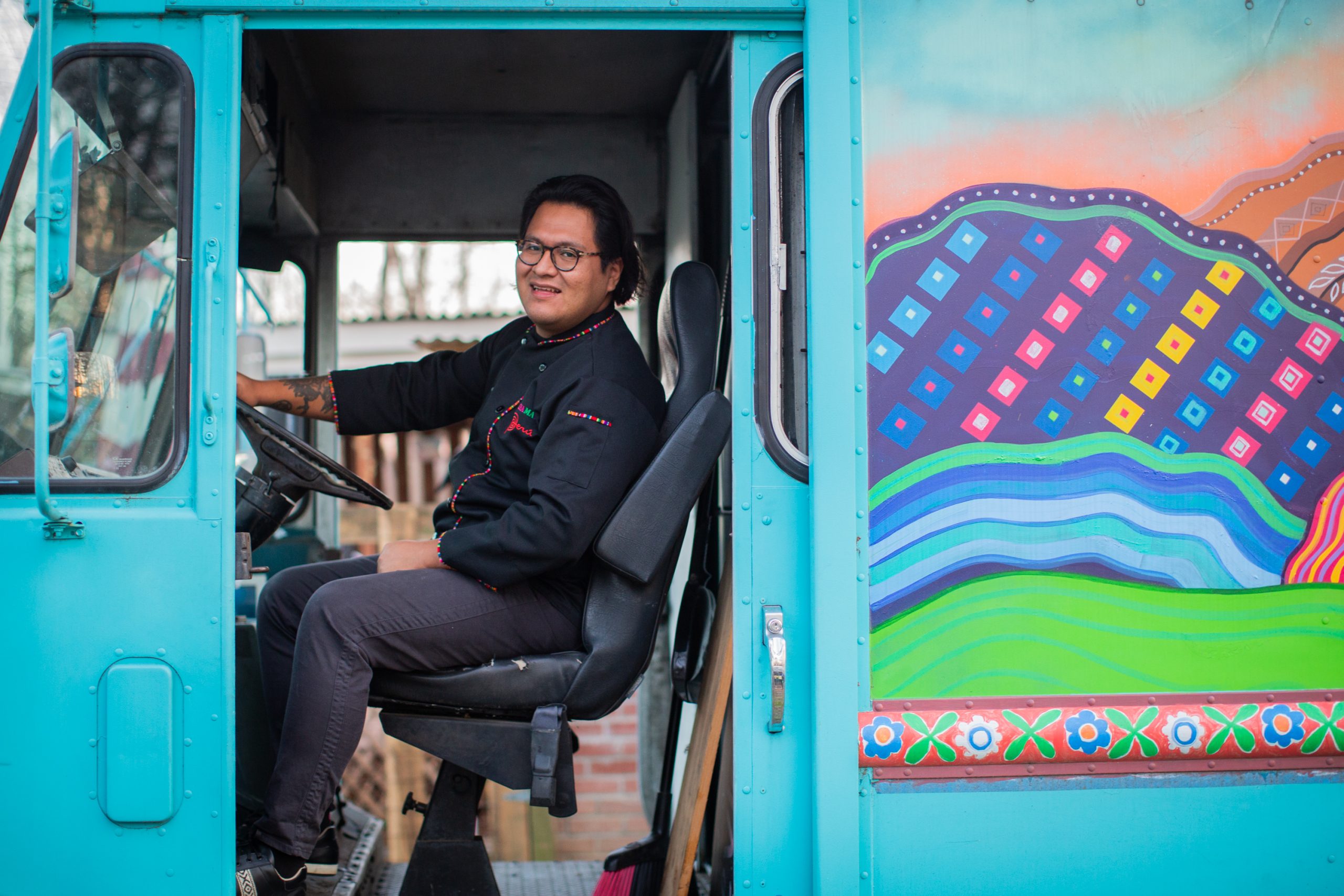City Market-goers know where they oughta get empanadas. Julio Quispe’s Pachamama Peru offers some of the market’s best prepared eats, and his baked and fried Peruvian pies, filled with local meats and veggies, are the standout.
But empanadas are only the beginning—not only of the menu at Pachamama, but of what Quispe does for the local food community. In addition to operating his food truck, he runs Earlysville-based Pachamama Farm, which recently received a mid-Atlantic Food Resilience & Access Coalition grant to give food to those in need.
C-VILLE: How did you get into farming?
Julio Quispe: I used to work at Sylvanaqua Farms in Earlysville. It all started with me farming, and then I started the food truck. When I was working with Sylvanaqua Farms, we were trying to make local food more accessible to the community. When I started the food truck, I thought another way to do that would be to prepare food using the meat we raised, and try to source local ingredients, as well.
How do you cook with quality ingredients while keeping prices down?
That is the struggle, but empanadas are a great fit. I try to use cuts that are a little bit cheaper and at the same time make it tasty. We use a lot of ground meats. And it’s the same thing when we make special dishes. But it’s not easy, and I’m still figuring it out.
It seems like you get some help from your family.
Yeah—so, we all come from Lima in Peru. And I mostly grew up in New York, so it has always been a learning experience, trying to do a lot of the things we are doing. I never expected to be farming and doing these things with animals. My grandma and grandpa came from the Andes, and they had a background in farming. They would keep animals in the back space of their house in Lima. So, I did grow up with some of that.
How does your background influence the menu at Pachamama Peru?
A lot of the recipes are traditional Peruvian, and some are a mix. One of the things that’s been a hit is our pulled pork, which I season with Peruvian ingredients. Pulled pork is not something you get in Peru. My favorite empanada is the beef, egg, and olive. That’s the traditional empanada. But there are so many options. On the veggie side, I like the mushroom.
How have you been getting through
the pandemic?
It has been good, and I can’t really complain. I have been working with Local Food Hub, and that’s been really helping. We’re looking into frozen empanadas, getting them into retail. We’re still figuring out the details. Being able to sell our own meats—ducks and chickens—has been really helpful, and we’re doing a few markets and small catering events.






